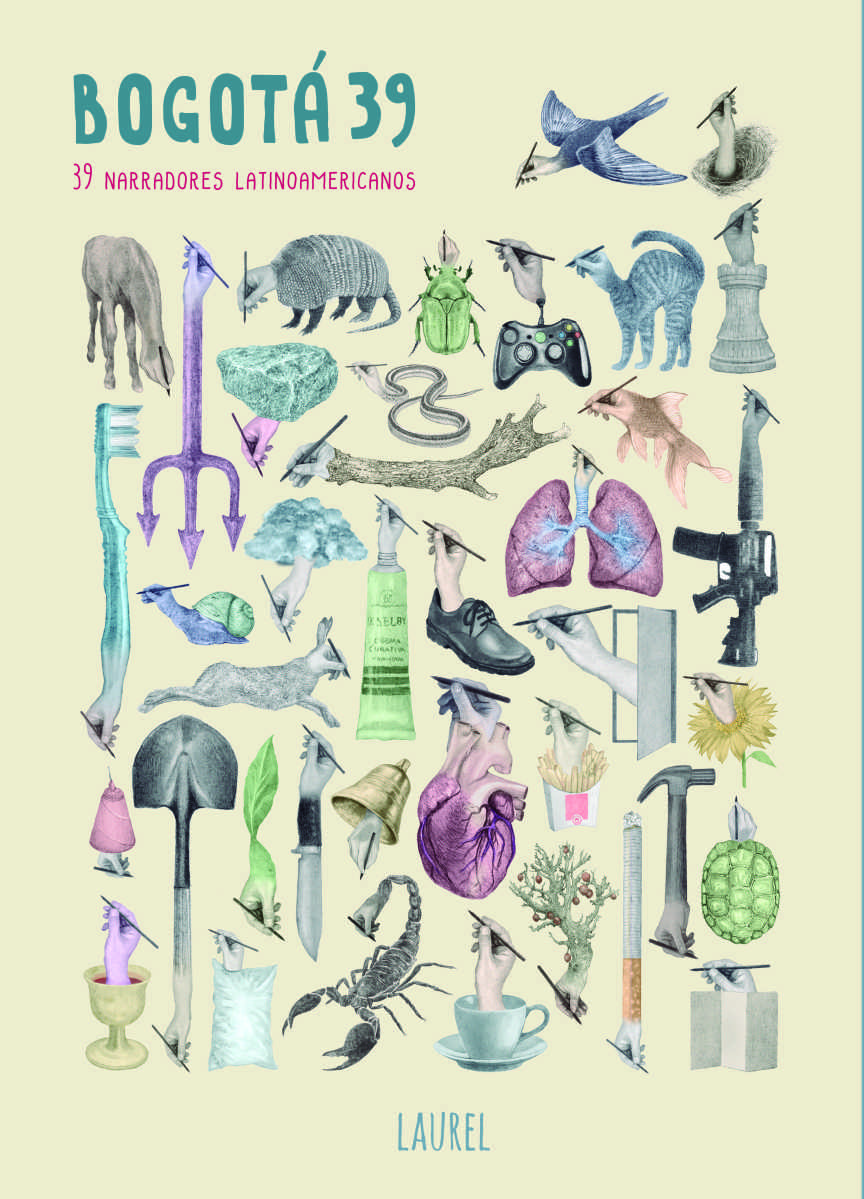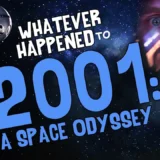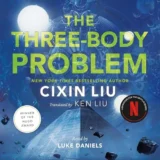 Watching the genre, the people associated with it and the industry behind it for the past four plus decades or so, I’ve run across five things – concerns, claims, issues, problems, call them what you will – that I would like to weigh in on.
Watching the genre, the people associated with it and the industry behind it for the past four plus decades or so, I’ve run across five things – concerns, claims, issues, problems, call them what you will – that I would like to weigh in on.
Those five things are, in no particular order:
Calls for eliminating the SF “ghetto”
Shame regarding our past/origins
Failure to give due consideration to changing styles & reader tastes
Sub-genre proliferation
Denying the genre’s ‘predictive’ qualities
I don’t want to get mired in a lot of detail regarding each of these issues, but I do want to try and frame each one just a bit; perhaps we can all engage in a bit more detail on each subject further on down the road.
The SF Ghetto. The concept of the SF ghetto is, essentially, that the science fiction community is a special enclave, capable of producing special things, inhabited by special people, an accepting environment in which both our misunderstood people and the works produced receive a supportive audience.
Arts “ghettos” are a known phenomena – places where artistic expression can run rampant, free of commercial constraints and demands, free of societal norms. Just about every art form we know today was originated and nurtured in one artistic ghetto or another.
Typically a new form takes shape because someone (or group of someones) gather together, throw off convention and begin experimenting. For themselves and their in-group. When something catches on, it enters the avante garde stage. The cognoscenti become aware, it begins to spread throughout the population, and at some critical tipping point the new art moves from avante garde to commercial applicability. Which is usually the death of the new art in its pure, original form. And typically the creators have already moved on to the next whatever thing.
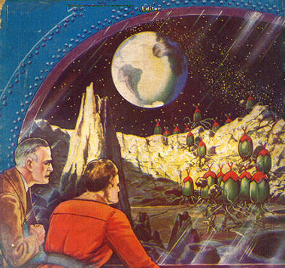 SF’s ghetto arose not so much with the introduction of a new art form as a new kind of community surrounding a particular literary form. It embodies a couple of key concepts – that the literature itself was special and that only special people were capable of truly appreciating it and all of its implications.
SF’s ghetto arose not so much with the introduction of a new art form as a new kind of community surrounding a particular literary form. It embodies a couple of key concepts – that the literature itself was special and that only special people were capable of truly appreciating it and all of its implications.
There are three paths that arts ghettos can take: they can fade away, they can continue as a ghetto – a special community for special insiders – or they can become commercialized and lose their special meaning as it is watered down to appeal to an ever-widening audience.
Anyone on the commercial side of science fiction would understandably be loathe to give up its growing popular appeal and the potential financial success that such might bring, but we should continue to remember that our art comes from a special place, from special people and is consumed and enjoyed by equally special people.
How and why? You don’t need an explanation, other than the fact that any group of people can get together, form a club and call themselves ‘special’. Why are they special? Because they say so and they all agree with each other.
There are good reasons for considering SF people special: we enjoy a wider scope of time and place, we readily engage with possible futures (and probably have a somewhat better idea of where things might be going); we’ve honed our powers of imagination to a fine point; we retain our willingness to engage in “childlike” activities, holding on to our sense of wonder, we believe that the future can be a better place and that our special interests might just help us get there.
If the genre loses any sense of a collective purpose we are left with nothing but the commercial aspects of the genre: so-and-so many millions of readers will buy a book about dragons or robots, magic or science. Just as many more millions will buy bodice rippers or mystery stories.
The SF ghetto serves as the genre’s rudder; it lets creators know when they’ve gone too far beyond the walls – and when they’ve got things right. And if you look at the history of the development of the field, it’s done a pretty good job. It forced the field beyond pulpy adventure tales, it curtailed the excesses of the new wave, it is now fostering an expansion of diversity.
If we lose the ghetto, we lose a special voice that producers are currently listening to. Should the fans decide where the genre goes – or should commercial considerations be the sole arbiter of the future of the genre? I’ll humbly suggest that we would all prefer the former.
Shame regarding our past – the outright dismissal of all works belonging to a particular era – as if you could judge literature based on the year it was written – entirely puzzles me. It often seems to come across as some kind of bizarre 1984 nuspeak – an attempt via propaganda to re-write history. (First you denigrate, dismiss and belittle, then you pretend that ‘awful’ thing simply never existed.)
It’s a totally unsupported argument and the exact equivalent of saying “oh, that book was written in 1992 – bad year for writing, don’t bother with it.” Such broad simplification doesn’t even work for wine – you’ve got to know the vintage as well as the year.
 I get that reading preferences change over time; I get that many older works have been mooted by the passage of time and changing technologies. But I also know that most of the authors working today, those whose stories are considered to be exactly what everyone is looking for in our newly enlightened era, got their education in science fiction by reading and loving all of those works and authors who now hail from the deep, dark, terrible past, when characters were wooden if they were lucky (cardboard if not).
I get that reading preferences change over time; I get that many older works have been mooted by the passage of time and changing technologies. But I also know that most of the authors working today, those whose stories are considered to be exactly what everyone is looking for in our newly enlightened era, got their education in science fiction by reading and loving all of those works and authors who now hail from the deep, dark, terrible past, when characters were wooden if they were lucky (cardboard if not).
You’d not be reading today’s science fiction if it weren’t for all that old stuff. Don’t believe me? Go read some interviews and find that question where they’re asked “who are your influences?” Guaranteed you’ll find them mentioning Asimov and Clarke and Bradbury and Farmer and Simak and…
Every single one of them read that stuff and said “ooooooo – I want to write that too!” And now you, lucky reader, are reading what they wanted to write. After reading what those other folks wrote.
So please. Stop dissing the entire first half-century plus of our genre based on nonsensical and unsupported ageism.
This next may be a particular pet peeve of mine and is certainly a variation on the preceding theme. I’m just completely tired of people saying that older SF suffers from “bad writing” and, in particular, the charges leveled against characterization.
Not all of it was bad. Furthermore, much of it was different.
Consider the changing landscape for genre fiction. From the 1920s thru the late 40s, the only science fiction published was written for pulp magazines. This emphasized the short story and supported certain writing conventions adopted for that kind of market. One of which was the use of stereotypical characterizations – in order to save words for the cool parts of the stories – the new technologies, the new worlds, the new alien species. Readers did not need “backstory” to know everything they needed to know about a character. Good guys did good guy stuff, bad guys did bad guy stuff. (And hardly any of them were ever conflicted by dual allegiances.)
There’s more room now for authors and some of it has been taken up by fleshing out and giving greater scope to character. The emphasis of story has shifted from the “big idea” to the “big angst” of character.
Let me also go one step further and suggest that, deliberately or not, the “lack of characterization” contributed something to story that has begun to fade: it was much easier for the reader to identify as the character (as opposed to with the character). When the hero/heroine isn’t encumbered by detail, there are far fewer roadblocks for the reader. Anyone transported to Barsoom would have the capabilities John Carter did when he first arrived (minus, perhaps, the fencing and horse skills but then, either of those are easily attainable – at least in one’s imagination).
Complicated characters quickly become someone that we can’t possibly be, simply because their (demonstrated) life history inevitably diverges so far from our own.
This is part and parcel of the growing distance between audience and imagination that has been developing for the past several decades (at least since Star Wars: contemporary audiences have no patience for story that requires them to fill in the unseen, they’ve gotten used to substituting the creator’s own specific vision for their own imaginations) – but that discussion is for another time. All I’m really trying to say is: approach the older works with the idea that they are different and not necessarily bad. You might find a lot more to enjoy.
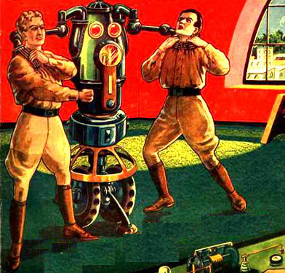 Sub-genre proliferation. I could go on on this one for hours. Suffice it to say that niche marketing, in all of its expressions, accomplishes two things and two things only: it makes more money for the marketers and it stifles experimentation and exposure.
Sub-genre proliferation. I could go on on this one for hours. Suffice it to say that niche marketing, in all of its expressions, accomplishes two things and two things only: it makes more money for the marketers and it stifles experimentation and exposure.
Niches DIVIDE. It’s as plain and simple as that. Create a pigeonhole and start stuffing it with the properly shaped bundle. What happens to the novel that is part science fiction and part fantasy? It can’t fit properly into either niche and is therefore left by the wayside (or the author is asked to change their work in order to tailor it for one niche or the other. I’ve been reading at least one email a month from an author who has mentioned they were asked to add or de-emphasize something in their new work that the publisher felt made the story “inappropriate” for a particular marketing category. Are you kidding me? You’ve got a book that might appeal to MORE than one market, but you’re killing it because you only know how to pigeonhole. Great Ghu!).
When I first started readings science fiction, it was pretty easy to find what I was looking for: visit the library and start walking down the fiction stacks. ANYTHING with a red and yellow rocket&atom sticker on it was fodder for the mill. Author didn’t matter and such things as sub-genre classification just didn’t exist. Works were not separated into cyberpunk and hard SF, science fantasy and planetary romance. In just a short time I could go from Asimov to Vonnegut – both of whom were identified as belonging to the same classification of fiction, both of whom are wildly different authors in everything from theme to style. Guess what? I still read both today. An unlikely outcome if one had been identified as “Hard SF” and the other as “New Wave”. I’d have been educated early on that my preference leaned towards Hard SF and I would probably never have gotten to the end of the stack with Vonnegut.
The whole wide world of science fiction was available to me – all I had to do was reach out and take.
Now I’m told whether I’ll like something or not before I’ve even seen the cover: some caring marketing maven has analyzed the content and determined that the engagement with social issues far outweighs the extrapolated technology. This new work “hails from the tradition of the New Wave” or, if the weighing went the other way “detailed world building and non-stop action in the tradition of Larry Niven”. Without reading, I’ll never know that it is really neither – but since I’m not that into New Wave or Niven, I’ll just pass on it, thanks anyway. (I am into New Wave AND Niven….)
Sub-genre niche marketing (did I mention that the process itself curtails reaching a wider audience since the number of books printed is based, at least in part, of the assessment of how many copies the niche can absorb?) is turning us from a community that received every new work with joy and anticipation into a bunch of individual enclaves that are eager to receive what has been tailored for them, and equally eager to ignore everything else. In the long run this can do nothing but contribute to the destruction of our shared dialogue and, ultimately, to the death of our community.
We need to stop slotting things into pigeonholes at anything below the Science Fiction level. Describe the works in ways that are meant to appeal to the widest possible audience – not the narrowest one. Encourage readers to be willing to pick up anything labelled as SF and to stop looking for a specific kind of SF. Read what you think you’ll like – but think about branching out just a tad every now and then. You may just find its a much bigger SF world than you thought.
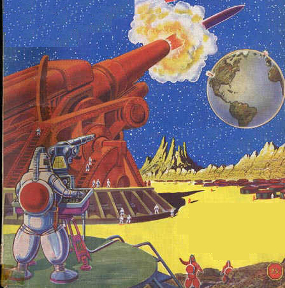 And lastly – the continued attempt to dismiss the genre’s so-called predictive qualities.
And lastly – the continued attempt to dismiss the genre’s so-called predictive qualities.
This one actually astounds me as it is very easy to find the grand masters speaking in their own voices about the fact that what they do is extrapolate and attempt to predict what MAY happen in A given future.
Denying that this is what they were trying to do – to one degree of success or another – flies directly in the face of the facts.
Which leads me to strongly suspect that the same people who want to hang the “old SF was terrible” handle on the genre are responsible. Another case of hoping that if enough influential, well-respected members of the community keep on saying it often enough, it will eventually become truth. ‘Science Fiction’s past no longer reflects what we want science fiction to be’. ‘We write literature and those guys – in our opinion – did not. Their reputation for bad writing is hurting the reception our works get.’ We don’t like the past so we’re going to re-write it. I guess they think that the only remaining good quality about old SF was its predictive nature (perception if not reality) and that by challenging that claim, they can safely dismiss everything.
Who is They? I’ve no idea, but I sure do wish that they learned that you can’t elevate yourself by denigrating others. Scapegoating only really works in primitive societies and the SF community sure doesn’t strike me as being a primitive one.
To put this one to bed: no, our classic, vintage, golden age authors were not trying to predict what was going to happen on February 2nd, 2014 in exacting and unimpeachable detail. They were treating the future as a simulation, changing a few variables and then running it to see what could come out the other end. How about making atomic-powered rockets readily available? Cool – we’ll colonize the solar system in a generation. What happens if information is under total governmental control? We’ll get something like Fahrenheit 451 or 1984. What happens if the advanced aliens find us and they’re really cool? Maybe someone will make a good living selling them cowpies (see Damon Knight for that one).
Perhaps changing the word we use may make more folks comfortable with the concept. How about calling what they did (what they claimed they were doing) forecasting.
Weather forecasters take a look at current trends and then extrapolate them into the future. They don’t predict the weather as that implies infallibility – which seems to be what everyone gets hung up on. We don’t got no stinkin flying cars – all dem bums was wrong! No. Dem bums took a look at hiway congestion, the growing number of cars per capita, the growing reliance of (US) society on personal vehicular transportation, the current state of aeroplane technology, the rapid advance of the same, filtered it through their fertile imaginations and posited that there was a good chance that the weather will be mostly sunny across much of the country. Or maybe not if the jet stream does another one of those deep dives again.
Here’s the difference: a fortune teller will tell you that you’re going to meet a tall, dark, mysterious stranger. Prediction. The science fiction author will tell you that if population growth continues its current trend, in fifty years it will be much more likely that you’ll run into someone who is tall, dark and mysterious. Forecast.
In conclusion: this is a wonderful genre, full of special people with special ideas that give us all a special, privileged position for looking into and engaging with the future. It’s full of great works, mediocre works and poor. It’s become one of the most lucrative entertainment genres in the history of the world. We need to protect those things that make it so, reject those things that make it not so and we need to stop eating our own. Lord knows there’s more than enough outside criticism and dismissal to go around. Let’s leave the negatives to the unfortunate, not-special people.
Steve Davidson is the publisher of Amazing Stories.
Steve has been a passionate fan of science fiction since the mid-60s, before he even knew what it was called.

